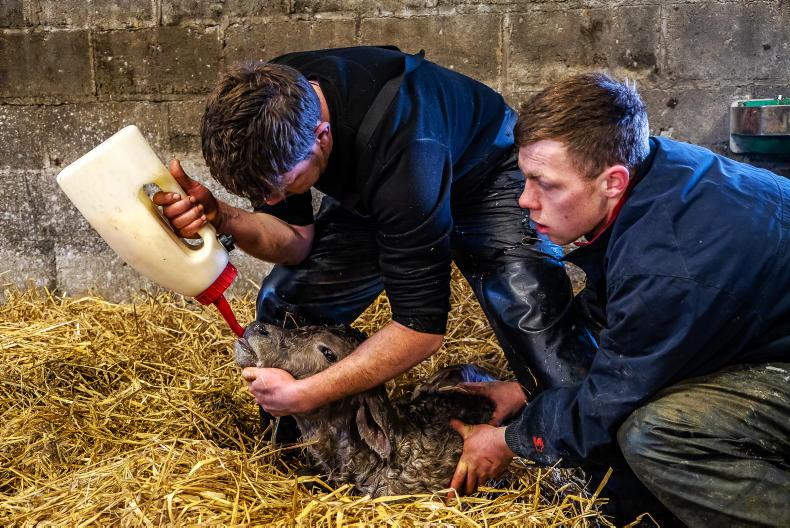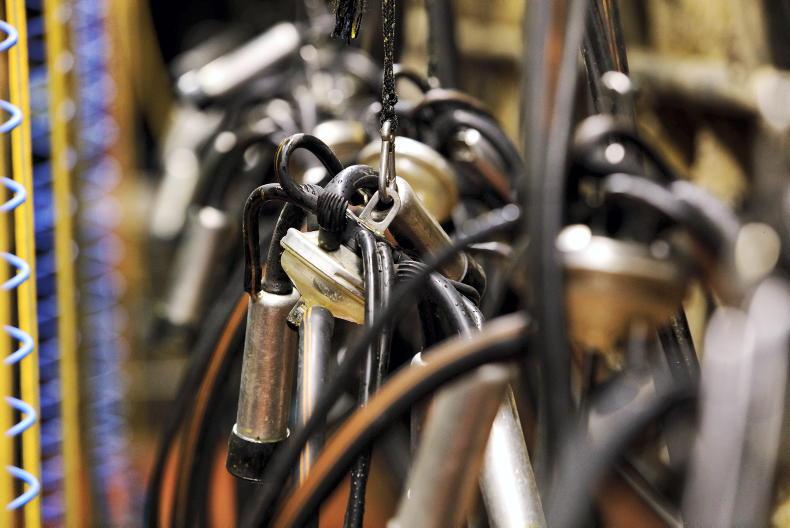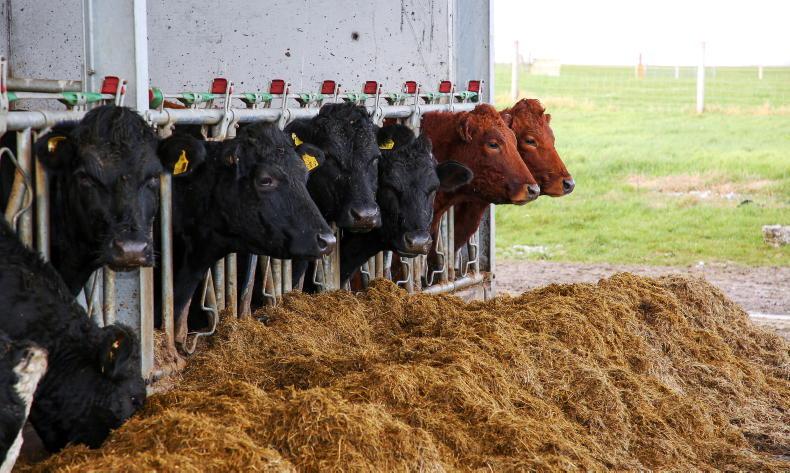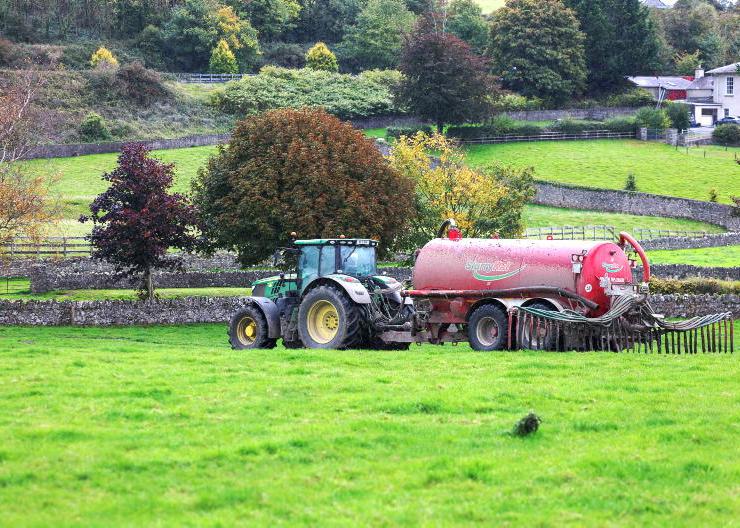Calving issues: Calving has ramped up this week on suckler farms.
Speaking to some vets as part of this week’s animal health focus this week, many have experienced issues already this spring with suckler cows in too good a condition.
They are putting this down to good silage made during summer 2020 and also the fact that there is ample silage on farms and no restricted feeding is taking place.
It’s important not to panic if you do have some difficult calvings. Restricting cows and trying to take condition off them in late pregnancy is likely to do more damage than good. For cows calving in May there is probably still some time to restrict a little, but not too much.
A cow’s ability to take in energy coming close to calving is restricted, so it’s important that she is in a fit condition to calve. Severely restricting the diet close to calving is also likely to have an impact on colostrum production. Making sure cows are getting exercise and moving around pens can help in the calving process. Can you let cows across a few pens rather than having them bunched up in one pen?
Farmers, especially in the south of the country, have used the good weather as an opportunity to get cows and calves out to pasture. Getting cows and calves out to grass reduces disease build-up, straw usage and labour input. It’s important to keep a close eye on young calves outdoors. Keep an eye for navel infections and make sure all calves are suckling and following mothers.
Try and keep young calves in sheltered paddocks as weather conditions will likely not stay as good as they are at the moment.
Weighing: Weighing animals on a beef farm can be a really useful tool in making decisions.
Labour and time issues are often given as reasons why more weighing is not carried out. However, it’s a really important tool in assessing performance of stock and more importantly your management skills.
If you weigh a group of weanlings this week and they have only gained 0.3kg/day over the winter period, then you know that something went wrong and you can go about correcting it. If no weights are taken, the same thing could happen again next winter. Taking a turnout weight now will also help you assess grazing performance during the year.
It is equally important in assessing cow performance in terms of calf weight gain. September-born calves are now coming close to 200 days, an ideal age to get a picture of how good a job the cow has done on the calf. Cows with very light calves or poor performers can be culled. Inputting these weights on the ICBF database will also improve the accuracy of a cow’s index and increase the reliability, helping you make more informed decisions.
A weighing scales costs about €1,000-€1,300 and is a really good investment for any beef farm. They are also eligible for a TAMS grant. Weights can be inputted on the ICBF database for future reference. Remember, if planning to wean autumn-calving cows, cow and calf weights must be taken before weaning to be eligible for the 2021 BEEP scheme.










SHARING OPTIONS